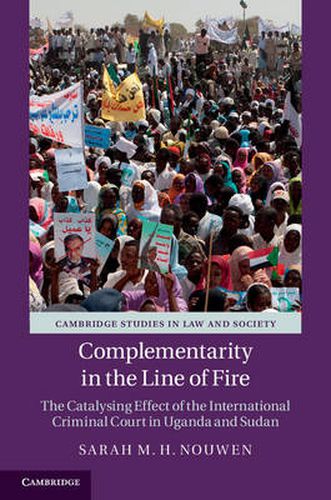Readings Newsletter
Become a Readings Member to make your shopping experience even easier.
Sign in or sign up for free!
You’re not far away from qualifying for FREE standard shipping within Australia
You’ve qualified for FREE standard shipping within Australia
The cart is loading…






Of the many expectations attending the creation of the first permanent International Criminal Court, the greatest has been that the principle of complementarity would catalyse national investigations and prosecutions of conflict-related crimes and lead to the reform of domestic justice systems. Sarah Nouwen explores whether complementarity has had such an effect in two states subject to ICC intervention: Uganda and Sudan. Drawing on extensive empirical research and combining law, legal anthropology and political economy, she unveils several effects and outlines the catalysts for them. However, she also reveals that one widely anticipated effect - an increase in domestic proceedings for conflict-related crimes - has barely occurred. This finding leads to the unravelling of paradoxes that go right to the heart of the functioning of an idealistic Court in a world of real constraints.
$9.00 standard shipping within Australia
FREE standard shipping within Australia for orders over $100.00
Express & International shipping calculated at checkout
Of the many expectations attending the creation of the first permanent International Criminal Court, the greatest has been that the principle of complementarity would catalyse national investigations and prosecutions of conflict-related crimes and lead to the reform of domestic justice systems. Sarah Nouwen explores whether complementarity has had such an effect in two states subject to ICC intervention: Uganda and Sudan. Drawing on extensive empirical research and combining law, legal anthropology and political economy, she unveils several effects and outlines the catalysts for them. However, she also reveals that one widely anticipated effect - an increase in domestic proceedings for conflict-related crimes - has barely occurred. This finding leads to the unravelling of paradoxes that go right to the heart of the functioning of an idealistic Court in a world of real constraints.